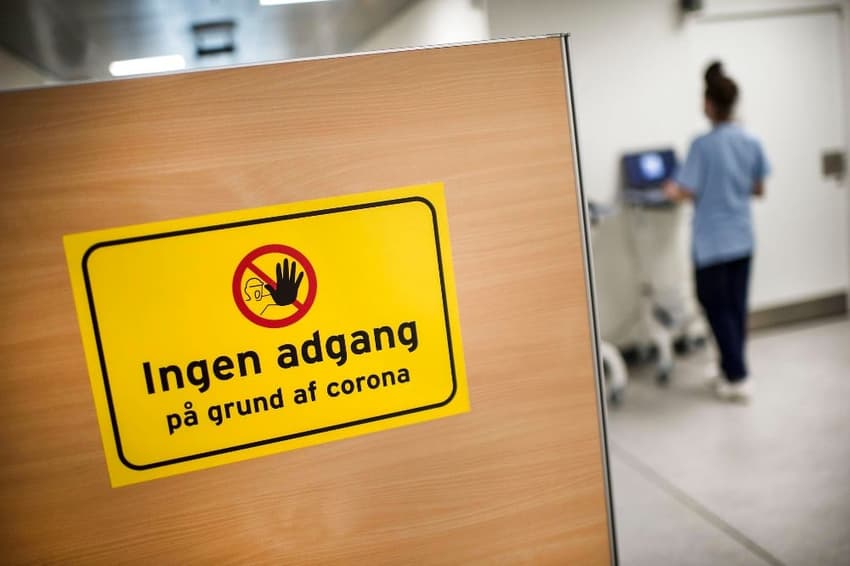Denmark’s health authority scraps isolation guidelines for Covid-19

The Danish Health Authority no longer recommends isolation following a positive Covid-19 test.
In a statement, the Health Authority said on Thursday that Covid-19 is no longer considered to have any special status compared to other illnesses, and that isolation is therefore no longer required following a positive test.
“We can now take even more steps towards normal conditions in relation to the Covid-19 response in both the community and the health service,” the Health Authority’s acting head of department Line Raahauge Hvass said in the statement.
“There is no longer any need for very specific requirements for Covid-19 in relation to other diseases, for example for a person with a positive Covid-19 test to isolate for at least four days,” she said.
The Health Authority still recommends staying home if you are ill, however. This is to help prevent the spread of both Covid-19 and influenza.
It is important to “prevent infection with all types of respiratory infections, because influenza can also cause serious illness for elderly and chronically ill people and put strain on the health service,” Hvass said.
“You should stay home if you are sick – regardless of whether you think it’s Covid-19, influenza, or another respiratory infection,” she said.
The change in Health Authority guidelines also means the end of standardised Covid-19 testing for all people admitted to hospital.
Denmark’s vaccination programme for Covid-19 remains unchanged, with all people over the age of 50 offered a booster or “fourth dose” of the vaccine this winter.
People under 50 can also be offered vaccination if they are in risk groups for serious illness.
Those not eligible for the booster can still receive one under a paid scheme.
READ ALSO:
Comments
See Also
In a statement, the Health Authority said on Thursday that Covid-19 is no longer considered to have any special status compared to other illnesses, and that isolation is therefore no longer required following a positive test.
“We can now take even more steps towards normal conditions in relation to the Covid-19 response in both the community and the health service,” the Health Authority’s acting head of department Line Raahauge Hvass said in the statement.
“There is no longer any need for very specific requirements for Covid-19 in relation to other diseases, for example for a person with a positive Covid-19 test to isolate for at least four days,” she said.
The Health Authority still recommends staying home if you are ill, however. This is to help prevent the spread of both Covid-19 and influenza.
It is important to “prevent infection with all types of respiratory infections, because influenza can also cause serious illness for elderly and chronically ill people and put strain on the health service,” Hvass said.
“You should stay home if you are sick – regardless of whether you think it’s Covid-19, influenza, or another respiratory infection,” she said.
The change in Health Authority guidelines also means the end of standardised Covid-19 testing for all people admitted to hospital.
Denmark’s vaccination programme for Covid-19 remains unchanged, with all people over the age of 50 offered a booster or “fourth dose” of the vaccine this winter.
People under 50 can also be offered vaccination if they are in risk groups for serious illness.
Those not eligible for the booster can still receive one under a paid scheme.
READ ALSO:
Join the conversation in our comments section below. Share your own views and experience and if you have a question or suggestion for our journalists then email us at [email protected].
Please keep comments civil, constructive and on topic – and make sure to read our terms of use before getting involved.
Please log in here to leave a comment.